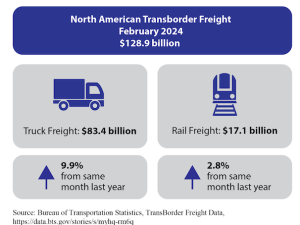The government introduced the legislation in the House of Commons to end a work stoppage by 4,800 locomotive engineers, conductors and rail traffic controllers at CP Rail, Canada's second-biggest railway.
"From past precedent, we'd like CP Rail continuing to roll on. But we'd like it sooner than later, quite frankly, and that's the message today," Raitt said in Ottawa, flanked by Canada's ministers of transport, energy, agriculture and industry.
The unionized employees have been on strike since May 23 over pension issues and work rules, shutting down CP Rail freight operations across Canada for nearly a week. The latest round of mediated talks between the company and workers broke down at the weekend.
The government fears the strike could hurt an economy still recovering from recession. Raitt has said a strike would cost C$540 million ($530 million) in economic activity each week.
"It is very clear that the government of Canada must act now to resume rail service at CP Rail, as the prospect of ratified agreements in the short term is highly unlikely," Raitt told the House of Commons earlier in the day. "Simply put ... the strike can't go on. We need to get the trains running again."
An accelerated back-to-work bill will become law shortly a fter it passes the House and Senate a nd will take effect 12 hours later.
The majority Conservative government has resorted to legislation to end strikes at Air Canada and the Canada Post mail service, and the two main opposition parties were harsh in their criticism.
"If employers know they can count on the government to intervene on their side to put an end to collective bargaining, then there is less need for them to have good-faith negotiations at the bargaining table," said Peggy Nash, a member of Parliament from the left-leaning New Democratic Party.
Kevin Lamoureux, a Liberal Party legislator said: "Today we are seeing the shafting of the CP workers, and I say shame on the government for not believing in the importance of free collective bargaining."
The CP Rail union said the two sides could likely reach a deal if CP backed down on its pension plan demands.
"They don't want to do that because they want to take the money from our pension plan and they want to give it to the shareholders," Teamsters chief negotiator Doug Finnson told reporters in Ottawa. CP wants to reduce pension funding by 40 percent, the union says. CP has said it needs to cut legacy pension and post-retirement benefits to bring them in line with the industry. The railroad says it has contributed C$1.9 billion extr a to its pension plans in the past three years due to funding shortfalls. While the bill is being enacted, CP Rail will prepare for a ramp-up in operations, it said. B oth sides said they would comply with the legislation.
Seeking New Routes
Companies across a range of industries have scrambled to find alternative ways to ship their grain, coal, fertilizer, autos and other goods while CP trains sit idle, and some industry groups have urged the government to step in.
The Canadian Vehicle Manufacturers' Association said on Monday its members, which include General Motors of Canada, Ford Motor Co of Canada and Chrysler Canada, were incurring extra logistics costs of C$100,000 a day due to the strike.
The strike is also frustrating grain handlers. Companies such as Cargill Ltd, Richardson International Limited, Archer Daniels Midland Co and Bunge Ltd are crushing canola at a record pace, producing vegetable oil and meal to feed strong global demand.
"It's causing some anguish because we need all the rail capacity we can with the larger crush volumes and larger rates of export," said Bob Broeska, president of the Canadian Oilseed Processors Association. The Canadian Wheat Board, which holds a monopoly on marketing wheat and barley from the 2011/12 crop m







